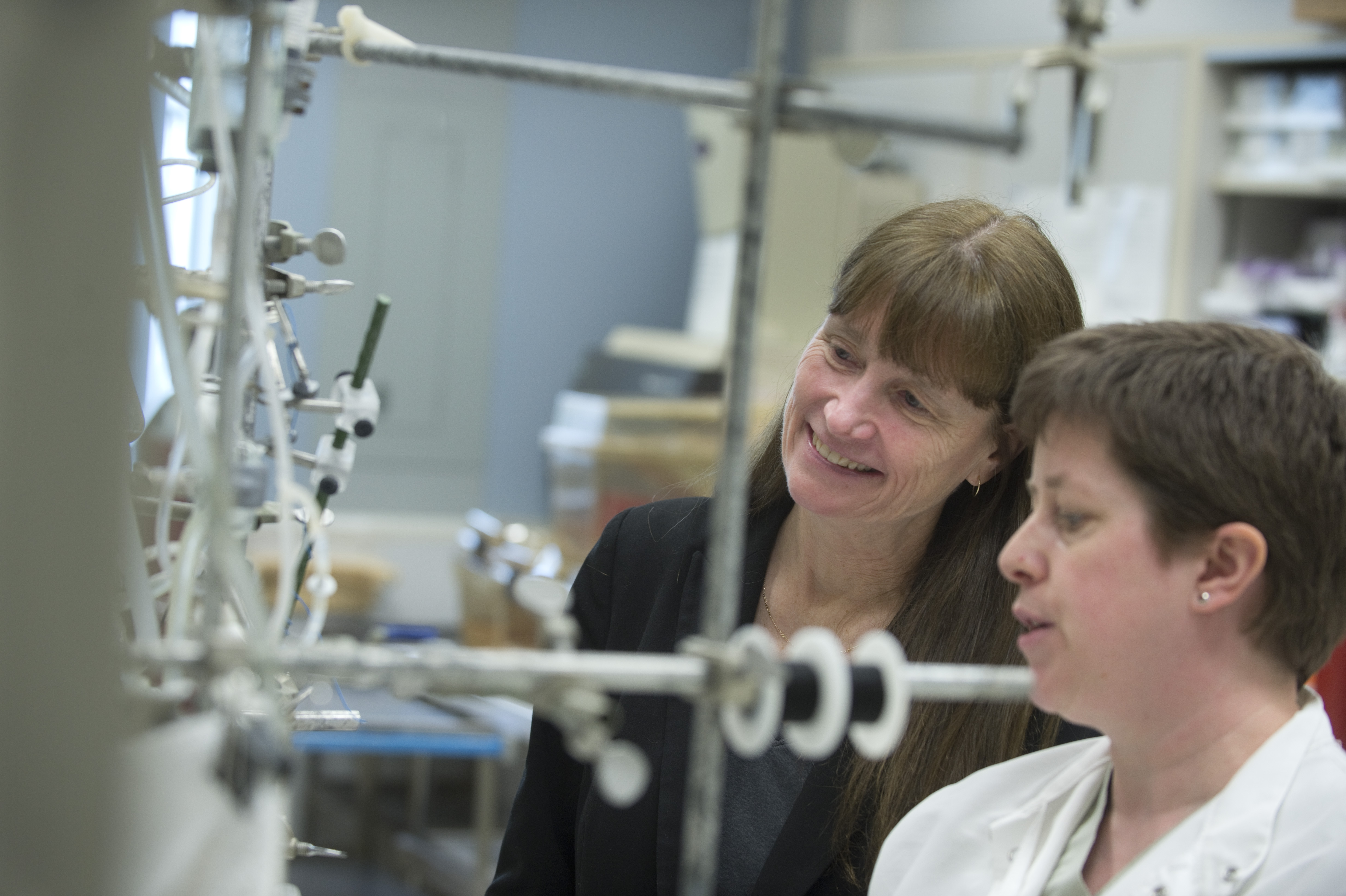
Sandra Davidge (left) in her lab at the University of Alberta
When children are born kicking and crying into the world, it is referred to as the miracle of life. But for the University of Alberta's Sandra Davidge, the miracles begin far sooner-in the womb.
"Development is such a dynamic process over the nine months of a pregnancy that is ultimately setting the stage for later-life health," said Davidge.
A Canada Research Chair in Maternal and Perinatal Cardiovascular Health, Davidge is one of Canada's leading scientists exploring pregnancy complications and the impact they have on maternal health and fetal development. Her groundbreaking work has now received a boost thanks to a Canadian Institutes of Health Research (CIHR) Foundation Grant worth $2.5 million over seven years. The grant will allow Davidge to establish a wide-ranging program of research at the U of A, innovating approaches to diagnose prenatal problems sooner and improve the in utero environment in at-risk pregnancies.
"Many chronic diseases-high blood pressure, cardiovascular disease-people always think about treating them at the later stages of life," said Davidge, who also serves as executive director of the U of A's Women and Children's Health Research Institute (WCHRI). "But chronic disease can actually start during development. If we can do early intervention and prevention, we're going to change that trajectory to have better health outcomes."
According to Davidge, improving fetal outcomes is essential to improving the health of the population as a whole. Moms won't be left out of her work though. Part of the program will explore ways to improve health outcomes for moms who suffer from conditions such as preeclampsia, a complication involving high blood pressure during pregnancy affecting approximately five per cent of all moms-to-be. Preventing preeclampsia will also protect against cardiovascular problems in later life.
Another key area of interest will involve discovering a safe way to treat unborn babies indirectly-through the placenta.
"The most benign products can have an impact [on the fetus], especially depending on the stage of development," said Davidge. "There are so many unknowns. We are exploring ways to specifically treat the placenta-without direct drug exposure to the fetus-so that there is better oxygen and nutrient transfer for improved growth."
Through her research, Davidge hopes to make fundamental discoveries that will quickly lead to clinical trials, and from there, to the clinic.
The research program will build upon an already established history of excellence at the U of A. Davidge first came to the university more than 20 years ago because of its innovative work in perinatal health. Since then, she says that tradition has only grown stronger with the establishment of WCHRI in 2006, partnered with strong support from both the Stollery Children's Hospital Foundation and the Royal Alexandra Hospital Foundation.
"We really do have the best environment for women and children's health here in Canada," said Davidge. "You can't underestimate the power of these collaborations to allow for this impact on women and children's health-not only in our community, but nationally and internationally."